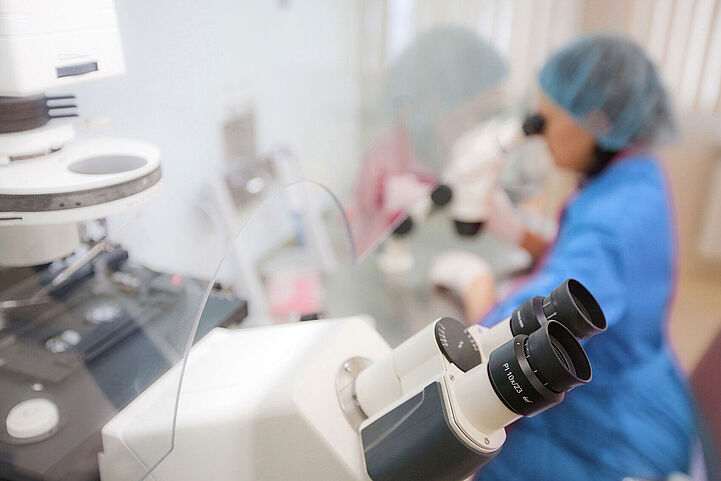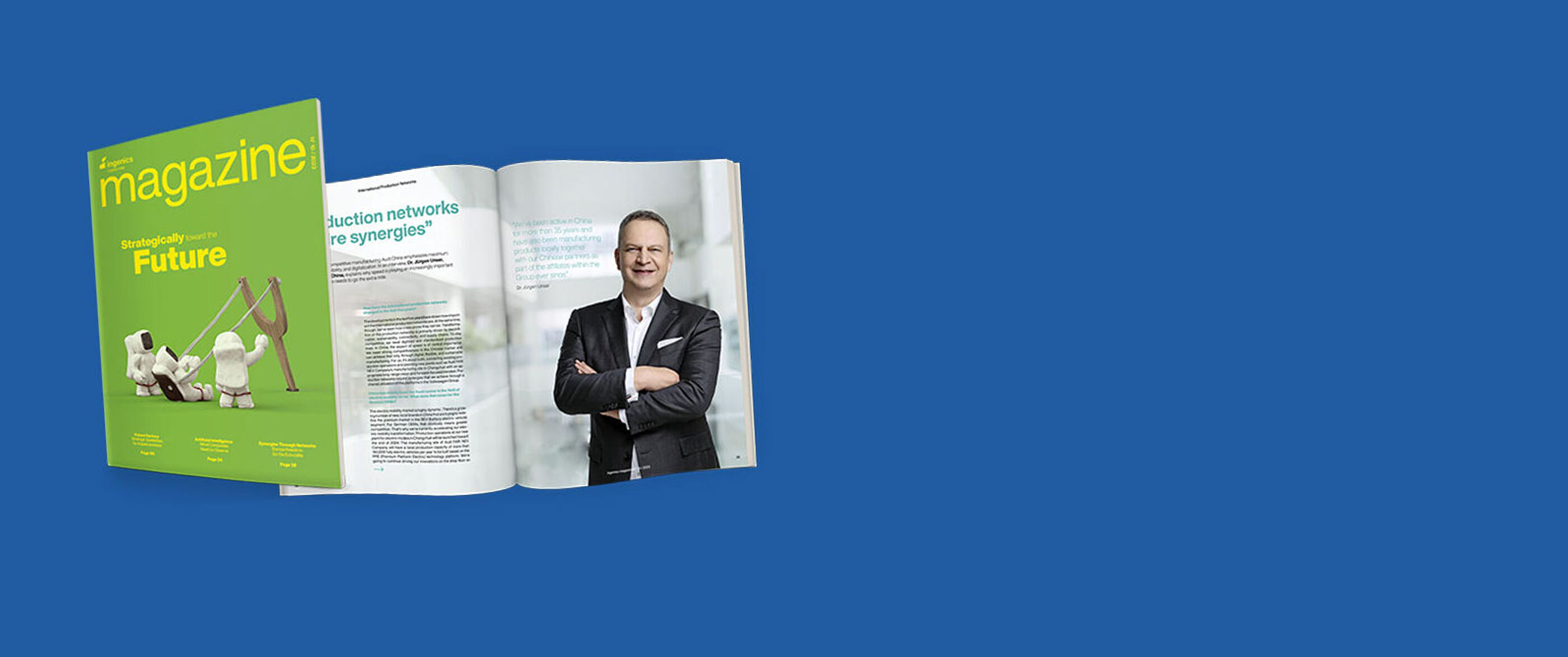Medical Technology: A Transforming Industry
 ©
©
Manufacturers of medical devices are under heavy pressure to transform. Global competition has become stronger in recent years due to the growing proportion of emerging markets in the global medicine marketplace and the entry of companies from outside the industry. For this reason, advancements in technology, digital transformation, and automation are playing an increasingly important role when it comes to cost efficiency and developing innovative, comprehensive healthcare solutions. Simultaneously, new regulatory requirements such as the EU’s Medical Device Regulation are placing heavy demands on the administrative and operational processes of OEMs and suppliers.
Medical Device Manufacturers Must Change
Short innovation cycles, a wide range of variants, and extremely high quality have been characteristics of the medical technology industry for years. German manufacturers, particularly small- and medium-sized enterprises (SMEs), have been able to develop competitive advantages for themselves in this global growth market thanks to their strong innovation. However, their position is more at risk than ever due to the increasing pressure from competition, costs, new regulatory requirements, and the challenges of digital transformation.
The future belongs to organizations whose primary and supporting processes are lean and high-performing and have integrated both inward and outward data. A range of levers must be pulled in order to achieve this state. Some of the items called for include:
- Critical analyses that focus on measuring how future-proof existing strategies, business models, and product portfolios are. For plans to be prudent in the future, they must also address the status quo throughout the supply chain.
- Initiatives that ensure more cost efficiency within a company and drive the flexibility of production and healthcare solutions; such initiatives cannot be realized without the smart, targeted use of digital technologies.
- Structures that are suited to meeting all regulatory requirements and standards, from the European Union Medical Device Regulation (MDR 745/2017) to MDSAP and quality management system standard DIN EN ISO 13485:2018.
Although there are currently many challenges facing the manufacturers of medical devices, their situation also offers opportunities: By getting rid of inefficiencies, optimizing outdated structures to meet regulatory requirements, and harnessing digital transformation in a targeted manner, they can maintain their strong position in the market and even significantly improve it. Now is the right time for this, especially as new regulations and standards are increasing the pressure on companies to act.
We Help Arm Your Company for the Future
Our consultants have successfully collaborated with medical-device manufacturers for many years. Based on this experience, we have developed concepts and standards that we quickly adapt to your requirements and implement using professional project and change management. This expertise, industry knowledge, and our growing international network allow us to support you in numerous domains:
Lean Management
How do you make your processes more efficient?
Many manufacturers spent a long time downplaying the importance of improving organizational structures and processes. The improvement potential that could be identified and leveraged using Lean Management has therefore not been revealed. Businesses cannot allow themselves to overlook this backlog anymore given the increasing competition.
Lean principles are the foundation on which our consulting is based. At the same time, our consultants know how lean methods should be applied to meet the medical industry’s strict regulatory requirements. Together with you, we develop a comprehensive concept that reflects your objectives and processes. We create a road map with all the actions that will progressively improve your organization by training your managers and workers as needed, and implementing these actions through extensive change management.
Digital Transformation
How do you engage in digital transformation without risking the official approval of your products?
With digital transformation, there are numerous opportunities for improvement and innovation in the medical-technology sector. Yet whether that be automation, a digital twin, or machine-data analyses, the technology that makes sense in your situation depends on regulatory requirements as well as the objectives and digital maturity of your company.
When medical-device manufacturers seek digital transformation and adjust processes, they need a risk-based approach that stops the adjustments from risking the validation of those processes. During the first step, our consultants create a digital transformation strategy that suits our client’s status quo and considers their complete value chain. Building on this strategy, we develop a road map with all the initiatives that we can implement for improvements in production, logistics, and procurement. This is the plan that we will pursue for the implementation of all improvement measures.
Supply Chain Management
How can you optimize your supplier network?
Even the smallest of mistakes can endanger human lives in the medical-technology industry. That is why the goal of Supply Chain Management is to create a transparent, high-performing supply chain in which all value-creation partners work together and are tightly connected. This reduces the risk of mistakes to a minimum and improves the efficiency of the entire supply chain.
We believe that there are two requirements that need to be met to achieve this goal: 100 percent transparency of all suppliers’ processes and a meaningful classification system, including concrete audit planning. In this case, transparency is created by key performance indicators and digital monitoring systems that enable real-time supplier monitoring. Classification in turn serves to organize suppliers based on their performance and strategic relevance. This appraisal is the basis for targeted improvements of all supply-chain processes.
Logistics
How can you improve your logistics operation without breaching regulatory requirements?
In the medical technology industry, even distribution is subject to heavy pressure from competition and costs. A focus is being put on inefficient logistics processes that were accepted for a long time thanks to high profit margins. This focus is not just on internal logistics, as it also includes collaboration with suppliers and partners.
When it comes to logistics, many manufacturers have immense improvement potential, particularly regarding transparency, flexibility, and speed. We conduct an analysis that looks at the complete value flow of your product. Based on it, we assess the points at which improvement is possible. In consultation with you, we then develop and realize a logistics concept that incorporates all statutory and government requirements.
Regulatory Requirements
How can you manage the administrative expense associated with new regulations (such as the EU Medical Device Regulation)?
The medical device industry is characterized by strict legal and regulatory requirements. Businesses are currently preparing for the implementation of the EU Medical Device Regulation, which takes effect on May 26, 2021 and includes numerous new reviewing, testing, inspection, and documentation obligations. The requirements for new products and production methods to be approved for the European Economic Area are therefore increasing considerably.
Our consultants have acquired a significant amount of experience with the regulatory requirements in the medical technology sector in recent years. Accordingly, we are familiar with the regulations and legislation that must be followed for the validation of a product. We analyze your current situation together with you and identify the gaps that you must fill in order to comply with regulations. Furthermore, we help you adapt your organization as quickly as possible, from the development of suitable structures to strategic cooperation with other companies (e.g., joint operation of quality-management or risk-management systems).
Corporate Mergers
Can you improve your situation with strategic partnerships?
Whether it is for strategic reasons or due to the administrative expense of regulatory requirements, many SMEs are better off joining forces with like-minded businesses and harnessing the resulting synergies. Some proven examples include quality-management officers and persons responsible for multiple companies, as well as jointly-used administrative systems. Resources can be deployed significantly more effectively with this form of centralization.
Our consultants assist manufacturers in every phase of the restructuring process. As part of a resilience analysis, we concentrate on financial considerations and, moreover, on whether the business models, corporate processes, and technologies used are future-proof and, if relevant, integrable. In connection with this resilience analysis, we compare the processes of the companies being integrated. This gap analysis is the basis for an integration map that we programmatically implement with intensive change management.
Production
What path leads to operational excellence in the medical-device industry?
Production processes and structures in the medical technology industry are often outdated. After all, for a long time there was no commercial imperative to improve them. Most manufacturers have a way to go before they can achieve loss- and waste-free production where all the factors of production are used efficiently.
With medical technology clients, we plan out the path toward operational excellence in multiple steps. Based on a thorough survey that reveals improvement potential and problems, we define an action framework which includes all measures feasible under the law and regulations. Proven initiatives here include the introduction of KPI systems and shop-floor management, point-by-point process optimization and problem solving for incidents, and intelligent hygiene and cleaning policies for production areas. Using these measures, we increase the productivity, quality, and flexibility of your production.
APQP is a structured approach that combines a variety of proven measures and methods for advance quality planning.
Originally developed in the automotive industry, it is now also used in the medical technology sector.
If you want to know more about this topic, our whitepaper on the subject will help you as a first step.

APQP: Consolidating Knowledge, Avoiding Errors, Lowering Development Costs
Advanced product-quality planning (APQP) is a systematic methodology for planning quality ahead of time. The methodology creates a product-quality plan that you can use to develop your products faster, more cost-effectively, and more reliably. The knowledge and experience (“lessons learned”) from all relevant departments are consolidated into one pool to close off sources of errors and lower development costs. It usually does not require any elaborate implementation process. Instead, all it needs are isolated adjustments that, in our experience, pay off very quickly.
Download



